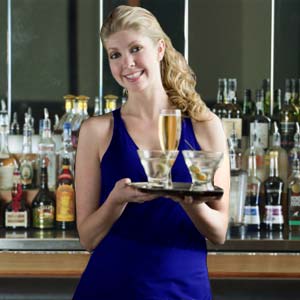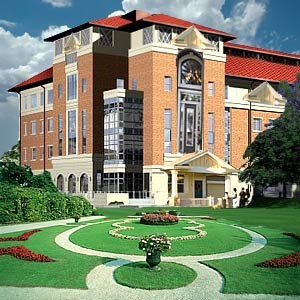Bartending Job
Bartending job is a non-traditional career. It provides ample amount of fun, excitement and challenges. You can decide to work full-time or part-time even without a college degree. You don't need to drink alcohol but should possess knowledge and skills to prepare exciting concoctions. Find out how to become a professional bartender? Is bartending limited to preparing alcoholic drinks? How to master flair for bartending skills?
Ability to come up with interesting cocktails, being personable and a good attitude help in becoming a competent and popular bartender. There is a vast potential to test your ability to keep audience totally entertained. Right from preparing drinks that suits the customer's mood to skillfully flipping bottles as well.
Bartending School
Attending a licensed bartending school is an established method to obtain the most comprehensive bartending training. Students gain insight into all disciplines of cocktail bartending and mixology. Students can hone their skills from experienced bartending professionals on the whole gamut of bartending services as well as the ways to incorporate flair bartending in the course of preparing and serving beverages. When choosing bartending schools to gain bartending education, you should look for credentials and long-term affiliations.
Bartending students benefit from hands-on training opportunity in a simulated bar environment. Licensed bartending schools teach students how to prepare an array of alcoholic drinks, give instruction on State and local laws and regulations, proper attire and conduct and stocking a bar. As use of real liquor is not permitted by the State Education Department, bartending recipes are taught using various dyes that look like real liquor, cordials, beer and wines.
Bartending students learn to build and present popular drinks which every bartender should know, how to maintain the glassware and garnishes used to serve alcoholic beverages, different mixing methods and presentation styles. Professional bartending instructors teach students how to make drinks and also impart training most required for an exciting career in the bartending industry.
Bartenders are in constant touch with customers. Bartending schools teach students how to behave and interact with customers. For those who wish to set up own bar or work full-time or part-time in bars, students are well prepared to launch a professional bartending career. Most of the bartending schools guarantee placement assistance to find bartending jobs. Upon successful completion of the course, students are issued bartending license.
Licensed and established bartending schools are located in all major cities. Online bartending courses enable completion of bartending courses from the convenience of home. Bartending schools provide comprehensive training in all areas of bartending and help develop a broad set of bartending skills amongst students and mould them into professional bartenders.
What does bartending involve?
A bartender is also referred as barkeep. Anyone, male or female can choose to become a bartender. The job opportunities for the novice or the experienced bartenders are excellent. Bartenders can find bartending jobs worldwide in restaurants, hotels, airports, train depots, catering establishments, casinos, social halls, amusement parks, event organizing companies, cafes and bistros, taverns, pubs, nightclubs or wherever alcoholic beverages are served. Private owned companies that offer bartending services also employ bartenders. During corporate events, weddings, holiday parties or theme parties, bartending service companies provide full-fledge bartending services.
Bartending services last for a couple of hours and bartenders can earn extra income apart from their regular employment. The experience gained from regular employment comes handy, as they will be involved in a host of bartending service activities. They literally set up a bar in client's premises, handle bar equipment, serve drinks, and carry out breakdown activities that form part of bartending services.
Bartending jobs demand a high level of physical stamina. Standing behind a bar, the bartender serves alcoholic beverages like wine, beer, straight shots and other mixed drinks. Outstanding customer service skills and the ability to understand and extend proactive services, multi-tasking are additional characteristics deemed necessary to become a successful bartender. Certain situations need to be handled in a responsible and tactful manner. At times, when customers drink heavily, bartenders are expected to tactfully communicate the same to the customer. Responsibilities of a bartender apart from mixing and serving drinks include:
- Keeping the bar area clean.
- Arranging liquors and drinks in a particular way
- Keep ready fruits for garnishing drinks
- Collecting payments from customers
- Operating the cash register
- Keeping stock of inventories
- Cleaning glasses & other bar equipment.
- Serving food in restaurant area.
- Check customer's ID (age-proof)
- Supervise junior bartenders and other bar staff.
- Complying with local and state drinking laws.
Flair for bartending
Generally, it would take years of practice as well as on-the job experience in order to become a successful bartender. A successful bartender, over the years gains expertise in bartending styles including bartending flair. Flair bartending is all about tossing bottles or doing certain tricks. The art of flipping, spinning, throwing, balancing, catching liquor bottles, mixed drinks and various bar tools in a dazzling way during the course of making cocktails is flair bartending.
Expertise in bartending flair provides the extra edge when you go for a bartender job opening. Bartenders, who are experts in flair bartending with a style of their own, can find good paying jobs in diverse parts of the entertainment and hospitality industry. Flair bartending is a perfect way to entertain guests, clientele or audience. Most bartenders learn enough flair to make a little extra money during job shifts or take part in flair competitions in a matter of a couple months.
Bartending career prospects and remuneration
Fresh candidates start a bartending career in the role of a bar-back, an assistant to bartender. A minimum of two years of experience as a bar-back helps in finding a job as a bartender. An industry that is considered to be 'recession-proof', most bartenders opt to work part-time and are paid by the hour. Tips from customers are the greatest portions of earnings.
Top of the Page: Bartending Job

 Career Development
Career DevelopmentWoman in the Workforce - Work ethic, work spirit and latest happenings on the work scene ...
Career Choices for Women - Career options, interview guides and tips ...
Women Entrepreneur Qualities - Be your own boss...
Achieving Work Life Balance - Delicate balance ...
Pre Hire Assessment - Measuring suitability ...
Ability and Aptitude Tests - Fit for the job ...
Internship Application Tips - Further your prospects ...
Free Career Aptitude Test - Unique insight into your talents ...
Resume Builder - Resume tips to climb the career ladder ...
Employee Satisfaction Survey - Read the pulse of an organization ...
Gini Coefficient - Gender Income Equality ...
Career Planning
 Managing Work Stress - Juggling time and responsibilities ...
Managing Work Stress - Juggling time and responsibilities ...Midlife Career Change - Crossroads of life ...
Career Assessment - Assess your skills to choose the right career ...
Career Counseling - How can a career counselor help you? ...
IQ Score - Tests of intelligence and ability ...
Career Aptitude Test - Provide unique insight into your talents and skills ...
Free Psychometric Tests - Make right hiring decisions ...
Spatial Reasoning Tests - Visualize complex shapes ...
Performance Appraisal - Assessment for future performance or potential ...
Telecommuting - Your virtual office ...
Career Opportunity
 Biomedical Engineering Jobs - Integrate medicine and engineering ...
Biomedical Engineering Jobs - Integrate medicine and engineering ...Actuary Jobs - Evaluating future risk ...
Market Research Analyst - Researching Market Potential ...
Family Counselor - Lend a patient ear ...
Career in Botany - Explore plant kingdom ...
Pet Sitting Service - Love for animals ...
Screenplay Writing - Weaving movie magic ...
Foreign Language Interpreter - Say it right ...
Psychology Degree Career - Understanding people ...
School Psychologist Career - Collaborate with educators and parents ...
Museum Curator - Appreciation of history, environment, arts ...
Graphic Arts Career - Visualize, arrange and attract ...
Animal Care Career - Far from the routine ...
Secretarial career - Office professional ...
Investment Banker - Ample growth prospects ...
Registered Dietitian - Address nutritional needs ...
Landscape Architect - Create aesthetic surroundings ...
Retailing Management - Work with merchandizing systems ...
Gemology Career - Eye for detail ...
Summer Jobs for 13 year olds - Learn and earn ...
Human Resources Jobs - Core business driver...
Summer Teaching Jobs - Passion for teaching ...
Summer Internship Program - Valuable work experience ...
Home Caregiver - Assisted living ...
Airline Careers - Take a peek into high flying careers ...
Fitness Career - Fitness is big business ...
Chiropractor - Treatment by hand ...
Interior Design Career Guide - - What makes a successful interior decorator? ...
Nursing Career Guide - Aspects of the nursing vocation ...
Real Estate Career Opportunity - Careers in land and property management ...
Newborn Photography - Capture the innocence ...
Massage Therapist Jobs - Knead stressed muscles ...
Recreational Therapist - Promote wellness through recreational activity ...
Hypnotherapist Job - Work on the subconscious ...
Ecommerce Consultant - Benefit from an online presence ...
Franchise Consultant - Dream of your own business but don't know where to start ...
Online Career Guide
 Freelance Writing Opportunity - Provide life to words ...
Freelance Writing Opportunity - Provide life to words ...Online Tutoring Services - Learn from home ...
Effective Web Content Writing - Writing content for impact ...
Proofreading Services - Checking content for errors ...
Telemarketing Services - Talk your way through ...
Transcription Services - Highly accurate and productive ...
Hospitality Career
Culinary Art School - Whip up a great career ...
Cruise Ship Jobs - Keeping up with increasing needs ...
Event Management Jobs - Coordinating many agencies ...
Bartending Job - Non-traditional career ...
Hospitality Career - Serving people and enjoying it ...
Restaurant Management - Another management career ...
Beauty Career
 Professional Makeup Artist - Transform your look ...
Professional Makeup Artist - Transform your look ...Wedding Coordinator - An integral part of important function ...
Hair Stylist - Get your clients to look and feel beautiful ...
Beauty Makeover Consultant - Providing a makeover ...
Fashion Design Career - Flair for style ...
Modeling Career - Find out what it takes to be a model ...
Legal Career
 Loan Officer Training - Assist and guide loan applicants ...
Loan Officer Training - Assist and guide loan applicants ...Fraud investment Lawyer - Securities litigation attorney ...
Law Enforcement Career - Competitive and interesting options ...
Top of the Page: Bartending Job

